第80章 IV(13)
The microscope has achieved some of its greatest triumphs in teaching us the changes which occur in the development of the embryo. No more interesting discovery stands recorded in the voluminous literature of this subject than the one originally announced by Martin Barry, afterwards discredited, and still later confirmed by Mr. Newport and others; namely the fact that the fertilizing filament reaches the interior of the ovum in various animals;--a striking parallel to the action of the pollen-tube in the vegetable. But beyond the mechanical facts all is mystery in the movements of organization, as profound as in the fall of a stone or the formation of a crystal.
To the chemist and the microscopist the living body presents the same difficulties, arising from the fact that everything is in perpetual change in the organism. The fibrine of the blood puzzles the one as much as its globules puzzle the other. The difference between the branches of science which deal with space only, and those which deal with space and time, is this: we have no glasses that can magnify time. The figure I here show you a was photographed from an object (pleurosigma angulatum) magnified a thousand diameters, or presenting a million times its natural surface. This other figure of the same object, enlarged from the one just shown, is magnified seven thousand diameters, or forty-nine million times in surface. When we can make the forty-nine millionth of a second as long as its integer, physiology and chemistry will approach nearer the completeness of anatomy.
Our reverence becomes more worthy, or, if you will, less unworthy of its Infinite Object in proportion as our intelligence is lifted and expanded to a higher and broader understanding of the Divine methods of action. If Galen called his heathen readers to admire, the power, the wisdom, the providence, the goodness of the Framer of the animal body,"--if Mr. Boyle, the student of nature, as Addison and that friend of his who had known him for forty years tell us, never uttered the name of the Supreme Being without making a distinct pause in his speech, in token of his devout recognition of its awful meaning,--surely we, who inherit the accumulated wisdom of nearly two hundred years since the time of the British philosopher, and of almost two thousand since the Greek physician, may well lift our thoughts from the works we study to their great Artificer. These wonderful discoveries which we owe to that mighty little instrument, the telescope of the inner firmament with all its included worlds; these simple formulae by which we condense the observations of a generation in a single axiom; these logical analyses by which we fence out the ignorance we cannot reclaim, and fix the limits of our knowledge,--all lead us up to the inspiration of the Almighty, which gives understanding to the world's great teachers. To fear science or knowledge, lest it disturb our old beliefs, is to fear the influx of the Divine wisdom into the souls of our fellow-men; for what is science but the piecemeal revelation,--uncovering,--of the plan of creation, by the agency of those chosen prophets of nature whom God has illuminated from the central light of truth for that single purpose?
The studies which we have glanced at are preliminary in your education to the practical arts which make use of them,--the arts of healing,--surgery and medicine. The more you examine the structure of the organs and the laws of life, the more you will find how resolutely each of the cell-republics which make up the E pluribus unum of the body maintains its independence. Guard it, feed it, air it, warm it, exercise or rest it properly, and the working elements will do their best to keep well or to get well. What do we do with ailing vegetables? Dr. Warren, my honored predecessor in this chair, bought a country-place, including half of an old orchard. A few years afterwards I saw the trees on his side of the fence looking in good health, while those on the other side were scraggy and miserable. How do you suppose this change was brought about? By watering them with Fowler's solution? By digging in calomel freely about their roots? Not at all; but by loosening the soil round them, and supplying them with the right kind of food in fitting quantities.
Now a man is not a plant, or, at least, he is a very curious one, for he carries his soil in his stomach, which is a kind--of portable flower-pot, and he grows round it, instead of out of it. He has, besides, a singularly complex nutritive apparatus and a nervous system. But recollect the doctrine already enunciated in the language of Virchow, that an animal, like a tree, is a sum of vital unities, of which the cell is the ultimate element. Every healthy cell, whether in a vegetable or an animal, necessarily performs its function properly so long as it is supplied with its proper materials and stimuli. A cell may, it is true, be congenitally defective, in which case disease is, so to speak, its normal state. But if originally sound and subsequently diseased, there has certainly been some excess, deficiency, or wrong quality in the materials or stimuli applied to it. You remove this injurious influence and substitute a normal one; remove the baked coal-ashes, for instance, from the roots of a tree, and replace them with loam; take away the salt meat from the patient's table, and replace it with fresh meat and vegetables, and the cells of the tree or the man return to their duty.